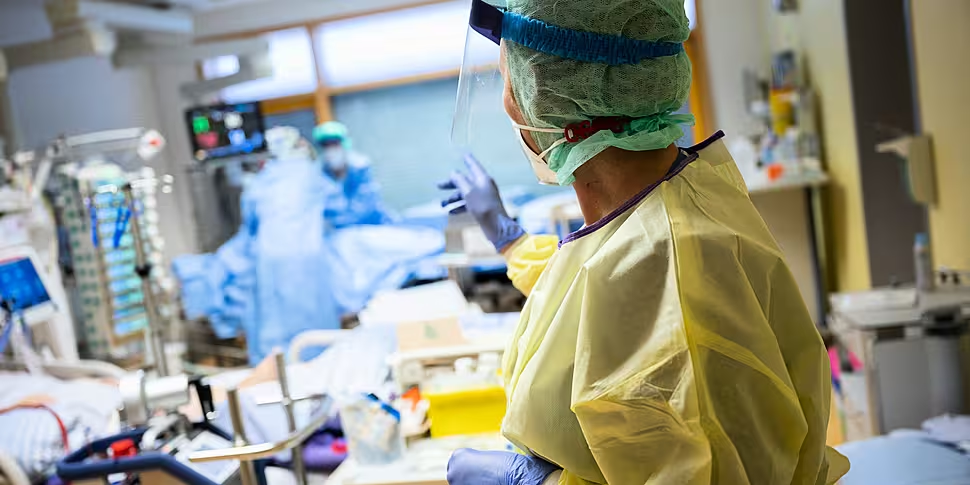The number of patients with COVID-19 in public hospitals has fallen below 600 for the first time since January 1st.
While, according to latest HSE figures, 10 people in ICU died after contracting the virus - the largest number in a 24-hour period since the start of the pandemic.
It comes as 574 new cases and 56 additional deaths were reported here on Wednesday.
The national 14-day incidence rate of the disease has fallen to 231.
The number of COVID-19 patients in hospital and intensive care could be halved in less than a month, if the current trend continues.
NPHET has told the Health Minister Stephen Donnelly there could be 300 to 400 in hospital by the third week in March, and 50 to 70 in ICU.
It says the health service remains 'extremely fragile', and the pandemic has had an 'enormous impact' on healthcare staff.
NPHET says it is too early to advise when further restrictions should be eased, due to 'current uncertainties'.
Speaking on Wednesday Dr Ronan Glynn, Deputy Chief Medical Officer, said: "We continue to see good progress, but this needs to be sustained.
"It is vital that we get our children back to school over the coming weeks.
"A key part of making this a success will be our continued collective buy-in to the public health measures that are tried and tested. Stay at home, work from home where possible."
"Given the increased transmissibility of the virus now, we must continue to limit our social contacts and do all we can to starve this disease of opportunities to spread."
Vaccine priority
Some 222,073 people have received their first vaccine dose, while 131,898 have got their second.
It comes as health officials say the vaccine priority list is "constantly being reviewed", amid disappointment over the latest changes to the schedule.
People with 'very high risk' conditions are being moved up the list; however, there are no changes for those with 'high risk' conditions.
Meanwhile there is no priority for the country’s 500,000 family carers who still have no defined place on the list.
It means people under aged 16 to 69 with very high-risk conditions will now be offered the vaccine in the fourth phase, after the over-70s.
And the Taoiseach Micheál Martin has suggested the 5km travel limit could be eased on Easter Monday, April 5th.
He also told his parliamentary party on Wednesday evening that restrictions on outdoor activity, sport and construction could be lifted on that date.
The Dáil will continue a debate later on mandatory hotel quarantine, which would affect people coming here from 20 high-risk countries.
Reporting by Ben Finnegan, Eoghan Murphy and Jack Quann









